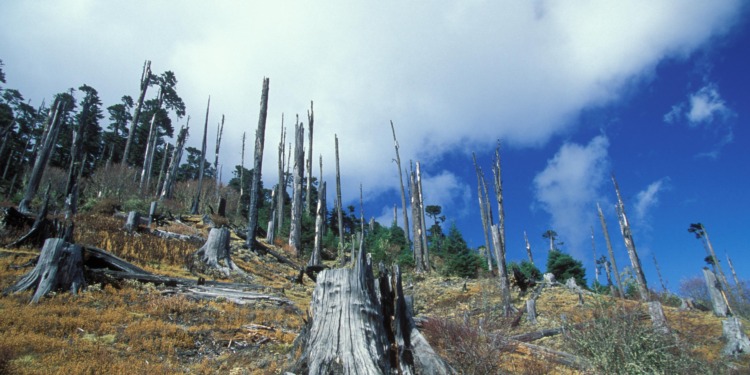On 13 September the EU Parliament “answered citizens’ calls” and voted in favour of strengthening a draft law that aims to ensure agricultural products sold in Europe have not contributed to deforestation or human rights violations.
Typically carried out for wood extraction – known as “logging”– or to create space for agriculture and animal grazing, deforestation has resulted in the destruction of one billion acres of forest since 1990.
However, this new and encouraging proposal could curb such environmental devastation and, as rapporteur Christophe Hansen states, “pave the way to deforestation-free supply chains.”
This will be especially pertinent to the Amazon rainforest as the EU are believed to be responsible for around 17% of tropical deforestation, making them one of the worst contributors.
200,000 citizens have been heard: the European Parliament voted today for a strong EU #Deforestation law!
more nature
more checks
more products covered
and clearer definitions
https://t.co/zdQt3MYSaw pic.twitter.com/TBsVhbq8EH
— WWF EU (@WWFEU) September 13, 2022
There were four key measures added to amplify this law initially proposed by the European Commission in November 2021.
Firstly, the legislation against producing goods on degraded land now applies to more commodities.
The original list suggested by the Commission consisted of palm oil, soy, coffee, cocoa, cattle, and wood. However, this has now been broadened to include rubber, maize, pigs, sheep, goats, and poultry.
There will also be a greater focus on the protection of human rights, the rights of Indigenous people in particular, as under this law communities would be able to bring evidence of non-compliance and raise complaints before European courts.
Additionally, the definition of the types of areas the law protects has been expanded to include “other wooded land,” i.e. bushland and shrubland, rather than solely forests. This means that spaces such as large parts of the Brazilian Cerrado, one of the most over-exploited areas in the country, would not be further used by EU companies to produce the goods listed above.
Finally, the law would now also implicate the financial institutions indirectly responsible for much of the issue, given it is their money funding the actions of the world’s largest deforestation culprits, and pressure them to review their investment portfolios.
Related Articles: The Battle for the Amazon Rainforest: Are the “Lungs of the Earth” Collapsing? | Mining Threatens 20% of Indigenous Lands in the Amazon
A poll conducted across nine EU countries last year concluded that 80% of citizens surveyed support the implementation of a strong law like this one.
Such a consensus is promising, though perhaps expected, as it is now widely understood how significant a role deforestation plays in climate change as well as the harming and displacement of indigenous populaces.
However, there have been criticisms posed that these additions to the law do not go far enough and that “serious loopholes” have been left unaddressed.
Major loopholes include:
- the fact that the law would not apply to “all ecosystems,” meaning grasslands and wetlands also at risk of devastation are not included in the regulations;
- the law would also allow large traders and operators to carry out their own due diligence, rather than requiring the use of a third-party audits;
- the inclusion of a remediation fund to aid communities affected by deforestation in the restoration of their homes was not approved by the MEPs.
It is hoped that these shortcomings will be addressed next year when the matter is reviewed.
In the interim, the draft law will undergo three-way negotiations between the European Parliament, national governments and the European Commission.
Should all proceed well, it is only a matter of time before the EU takes an important step in the protection and recovery of our planet by removing the largest contributors to deforestation from the shelves.
Editor’s Note: The opinions expressed here by Impakter.com contributors are their own, not those of Impakter.com. In the Featured Image: Deforestation in Bhutan. Featured Image Credit: World Bank Photo Collection









